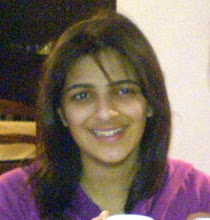
Tuesday, 4th August
It sounds trivial, but the most physically excruciating thing I’ve had to learn is how to stand for several hours at a time, without any sitting breaks. When you are scrubbed in to a 5+hour operation, your arms must be flexed and held at the level of your thorax at all times, and you’re not allowed to sit down, because chairs are not sterile. The pain sets in gradually, first stabbing the feet, and then gnawing its way through nerve fibres, settling finally at the junction between the hips and back: the sacroiliac joints. This is the point at which waves upon waves of pain fibres meet, and you find yourself bending your knees just to redistribute some of the perpetual aching, until chairs look like paradise. This said, it takes a just short while to get used to. After the first 2 or 3 days, I was fine: my muscles had bulked up the task.
The number of hours that residents are required work in this country is ludicrous, bordering on medically dangerous. For a neurosurgical resident, the hours are insane. A typical day would roll as follows:
5am - arrive at the hospital to round on patients and write up the progress notes.
7am – multidisplinary meeting to discuss all patients, with neurologists, Intensivists and critical care nurses.
7:30am – operating list starts.
8pm – operating list finishes (if your own list finishes before this, you have to scrub in and help in other attedings’ lists).
8:30pm –evening ward round, checking on the patients
10pm –Home
The same cycle continues day after day, with junior residents working at least one weekend shift (day or night). In between operations, the residents must also help the anaesthetists with post-op care of patients i.e. transporting the patient to PACU (post-anaesthesia care unit) and writing up all post-operative notes. Any floor work to be done on neurosurgical patients e.g lumbar punctures, central lines, is also their responsibility and each resident has a bleep that goes off hundreds of times per day. It’s absolutely crazy, but they learn very fast and get good practical experience.
One of the senior residents on our team is a Japanese lady who is 5’0’’ and so thin that she is almost 2-dimensional, yet her strength seem to outweigh that of the other residents (all 6’0''+ men) combined. Almost machine-like in her efficiency, she rapidly constructs the complex network of metal bars that are required to hold the patient’s head in position during operations, and screws them in together so tightly that none of the male residents can unscrew them afterwards. Wasting very little time on small talk, she writes discharge notes and reviews patients’ CT scans whilst eating lunch in the call box, and stops only briefly to tell me and Geoff, the other medical student on the team, that there is a “anoolsm crapping” in room 15. I must look utterly gormless as it takes me a couple of minutes to decipher that the procedure she is referring to is, in fact, an aneurysm clipping. It then dawns on me that one of our other patients isn’t having a “rumbal dlain” (a procedure I had never heard of) but a “lumbar drain”, which is entirely understandable. I felt somewhat terrible for misunderstanding her and looking thoroughly confused, but I’m on the ball now, and am an expert in converting r’s to l’s and vice versa.

